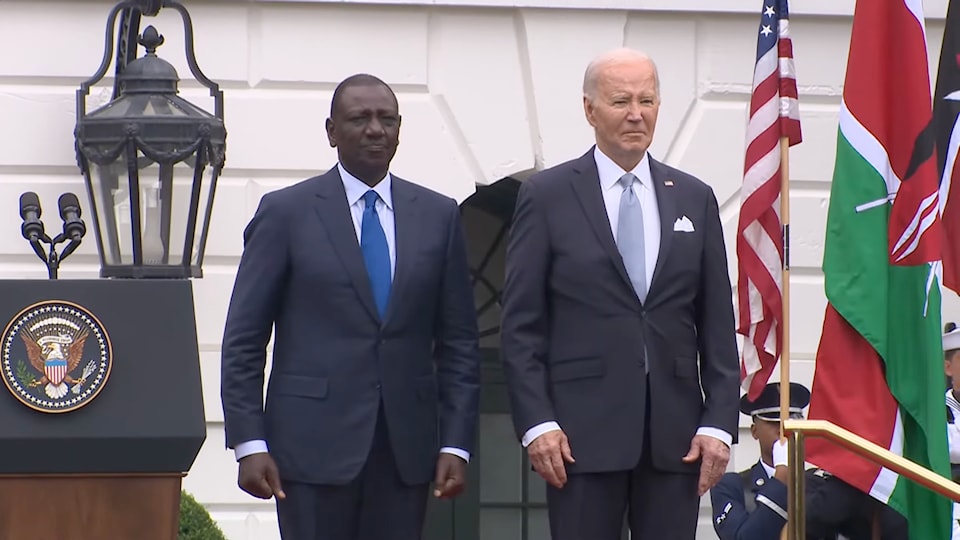Kenyan President William Ruto is in the U.S. for a state visit. Kenya is to be designated the first African major non-NATO ally.
U.S. President Joe Biden will designate Kenya as a major non-NATO ally (MNNA) today, the White House said in a press release.
Kenyan President William Ruto is on a three-day state visit to the U.S., beginning May 20, which includes bilateral talks with Biden at the White House.
This is the first formal state visit from an African leader since Ghana’s President John Kufour in 2008.
There are currently 18 non-NATO allies and Kenya will be the 19th, according to the Defence Security Cooperation Agency, an agency within the U.S. Department of Defense.
MNNA designation "provides foreign partners with certain benefits in the areas of defence trade and security cooperation," according to the State Department website.
The White House said the two leaders will discuss, among other things, trade and investment, health partnerships, climate solutions and peace and security cooperation.
The visit has clear benefits for Biden, reported the New York-based Council on Foreign Relations (CFR) think tank.
"Rolling out the red carpet is intended to signal respect not just for Kenyans, but for Africans more broadly — a counterpoint to the frequent complaints that the United States is either patronizing or neglectful in its Africa engagements," the report said.
Kenya is increasingly important to U.S. Africa policy, at a time when the U.S. is losing influence on the continent from a spate of coups in West Africa.
In a recent CFR podcast episode, Robert McMahon, the managing editor of The World Next Week podcast said the Kenyan visit makes sense.
"Kenya has been involved in lots of areas that the U.S. deems as important at a time when there have been some backsliding and real defeats, I would say for the U.S. on African content in terms of its projection of power and influence," McMahon said.
John Kamau, a Kenyan journalist and historian, said this designation will serve America's strategic interest within the region.
"The U.S. has a base in Mombasa (Kenya) and has been seeking to secure the Indian Ocean as a stable maritime highway," Kamau said in an emailed response.
"Number two, the designation will help to strengthen the regional capabilities in tackling the challenges offered by terrorists — and especially the militia in Somalia — which is a threat to the U.S. interests in Eastern Africa and the Indian Ocean," he said.
"It will also hamper the growth of other strategic competitors, such as China, which had made some inroads into Kenya as a development partner," Kamau said. "Third, there is the need to stabilize the region since it overlooks the gateway to the Suez, a vital trade route.
"Instability has always been a breeding ground for terrorists," he said.
There is also a clear security advantage for both countries in combating al-Shabaab in Somalia and in Kenya's upcoming — and U.S.-funded — peacekeeping mission to Haiti, McMahon said.
The state visit was announced by White House Press Secretary Karine Jean-Pierre in February to mark the 60th anniversary of U.S.-Kenya diplomatic relations.
Ruto's state visit will conclude with a state dinner at the White House.



